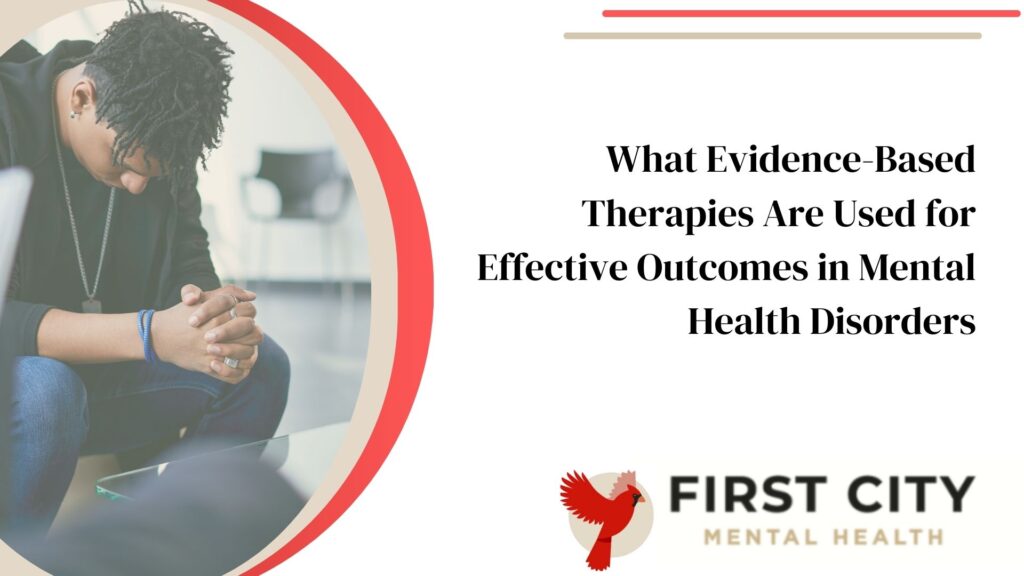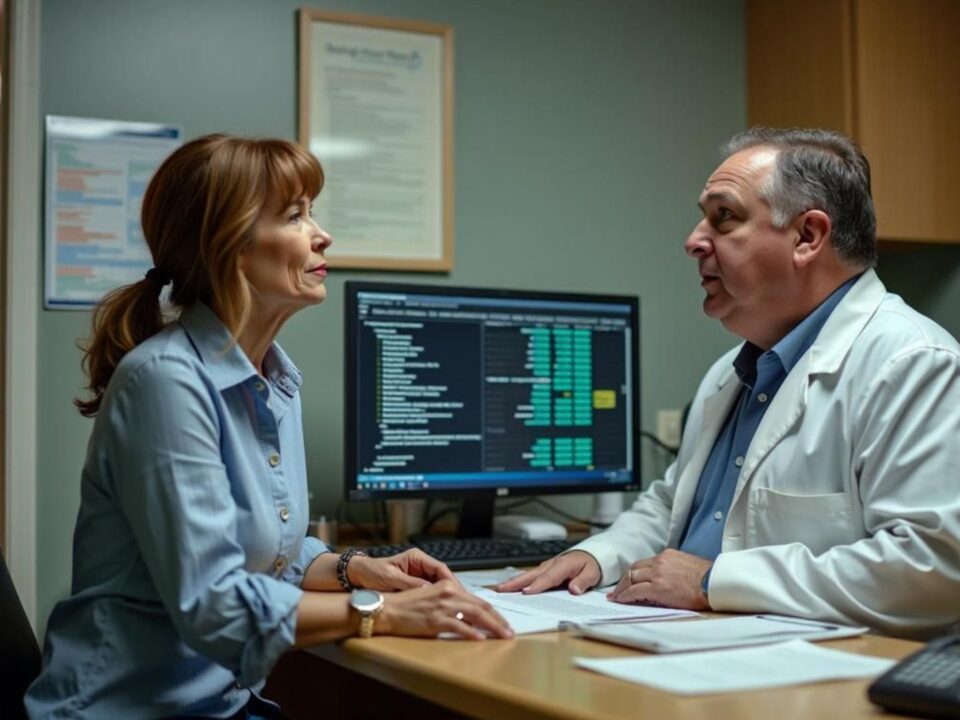
When Should You Consider A Co-Occurring Disorders Treatment Program?
January 21, 2025
What To Expect In A Co-Occurring Disorders Treatment Program?
January 21, 2025Many people find it challenging to deal with anxiety, depression, or other mental health issues while also facing addiction, a situation known as a co-occurring disorder. It can feel like an endless tug-of-war.
Here’s a fact that might surprise you: Co-occurring disorders treatment addresses both issues simultaneously. This integrated approach can make recovery smoother and more effective.
We’ll explain how specialized treatment centers enhance recovery outcomes for those with co-occurring disorders. We’ll explore individualized treatments, evidence-based therapies, peer support groups, and more.
Stay with us to learn how these tools can make all the difference in your journey to wellness.
Key Takeaways
- Integrated Approach: To treat co-occurring disorders effectively, it is crucial to address both mental health and substance use disorders simultaneously, leading to more effective recovery.
- Personalized Plans: Custom treatment plans address each individual’s unique symptoms and needs.
- Support Systems: Peer groups offer community and make people feel less alone in their struggles.
- Ongoing Assessment: Regular check-ups allow for quick adjustments in therapy and medications.
- Holistic Health Focus: Nutrition, exercise, and family involvement contribute to better outcomes.
Definition and Prevalence
Co-occurring disorders, also known as dual diagnoses, refer to the simultaneous presence of a substance use disorder and another psychiatric illness in an individual. This complex interplay of conditions can make treatment challenging but also crucial for effective recovery.
According to the Substance Abuse and Mental Health Services Administration (SAMHSA), approximately 8.9 million adults in the United States live with co-occurring disorders. Despite the high prevalence, only 7.4% of these individuals receive treatment for both conditions, highlighting a significant gap in comprehensive care.
Risk Factors and Causes
The development of co-occurring disorders is influenced by a combination of genetic, environmental, and psychological factors. Individuals with a family history of mental health disorders or substance use disorders are at a higher risk. Environmental factors, such as trauma, chronic stress, and adverse social conditions, also play a significant role.
Psychological factors, including self-medication, where individuals use substances to alleviate symptoms of a mental health condition, can further complicate the picture. Understanding these risk factors is essential for developing effective treatment strategies that address the root causes of co-occurring disorders.
How Individualized Treatment Plans Target Specific Needs in Co-Occurring Disorders Treatment
Individualized treatment plans address the unique mix of co-occurring mental disorders in each person. Custom strategies ensure effective symptom management through specialized psychotherapy and medication.
These personalized methods target specific needs, making recovery more likely for those with multiple diagnoses with co-occurring disorders treatment in Kokomo, Indiana.
Understanding how emotional self-harm, grief, and mental health interact is critical. This profound insight allows for better planning and success rates in treating co-occurring disorders.
Benefits of Integrated Treatment
Integrated treatment is a holistic approach that simultaneously addresses substance use disorders and mental health conditions. This method offers several key benefits:
- Improved Treatment Outcomes: By tackling both conditions at once, integrated treatment leads to better overall outcomes. Patients often experience reduced symptoms and an enhanced quality of life.
- Increased Patient Satisfaction: Patients receiving integrated care report higher satisfaction levels compared to those undergoing separate treatments for each condition. This comprehensive approach ensures that all aspects of their health are addressed.
- Reduced Relapse Rates: Integrated treatment helps lower relapse rates by addressing the underlying causes of both conditions. Patients gain the skills and support needed to manage their symptoms effectively.
- Enhanced Mental Health: Addressing the mental health condition directly improves overall mental well-being. Patients receive the tools and support necessary to manage their mental health symptoms.
- Decreased Substance Use: By focusing on the substance use disorder, integrated treatment helps reduce substance use. Patients learn strategies to cope with triggers and maintain sobriety.
Overall, integrated treatment is a cornerstone of effective co-occurring disorders treatment. It provides a comprehensive framework that supports long-term recovery and significantly improves the quality of life for individuals battling dual diagnoses.
What Evidence-Based Therapies Are Used for Effective Outcomes in Mental Health Disorders

Co occurring disorders treatment centers often use a mix of medication and psychotherapy. The complex relationship between drug abuse and various mental health conditions highlights the challenges in diagnosis and treatment due to the interplay of disorders. This combination targets individual needs for effective outcomes. For anxiety disorders, Cognitive-behavioral therapy (C.B.T.) is typically applied.
It helps people change negative thought patterns.
Support groups play a vital role in addressing addiction-related issues. These groups offer community and understanding. Customized approaches that integrate various therapies prove essential for mental health improvement.
Key options include psychotherapy, medication, self-care practices, and support group participation.
In Kokomo, Indiana’s co-occurring disorders treatment programs excel by incorporating these evidence-based methods into their plans.
Why Peer Support Groups Are Integral to Recovery
Evidence-based therapies lay a strong foundation for recovery. Mental illness often co-occurs with substance use disorders, making integrated treatment approaches essential for effective recovery. However, peer support groups offer emotional support and practical advice that professionals alone cannot provide. Individuals share their experiences, which helps reduce feelings of isolation.
These groups foster community and belonging. The encouragement in these settings enhances the effective management of the co-occurring disorders treatment Kokomo, Indiana, offers. This sense of understanding is crucial for the success of integrated treatment for co-occurring disorders.
How Continuous Assessment Improves Treatment Adjustments

Continuous assessment plays a vital role in treatment for co-occurring disorders. Regular check-ups help identify changing needs, ensuring treatment stays effective. This ongoing evaluation allows for quick changes to therapies and medications.
It leads to better management of symptoms.
Feedback from patients during assessments is crucial. Their input shapes more personalized care plans. This approach enhances the chances of long-term recovery success.
By constantly monitoring and adapting treatments, centers offer the best possible outcomes for those battling dual diagnoses.
What Role Nutrition Plays in Enhancing Recovery
Continuous assessment ensures timely adjustments in co-occurring disorders treatment centers. Integrated treatment for co-occurring substance use and mental disorders is crucial for comprehensive care. Alongside assessments, nutrition plays a vital role in enhancing recovery.
A balanced diet supports physical and mental well-being. Nutrient-dense foods provide essential vitamins and minerals that aid healing. Poor nutrition can worsen mental health symptoms, hindering progress.
Treatment centers often integrate personalized nutrition plans to improve outcomes.
Co-occurring disorders treatment focuses on every aspect of health. Better diet choices help boost the body’s resilience and support brain function. By addressing nutritional needs, patients can experience an improved quality of life and a smoother path to recovery.
Why Physical Fitness Is Encouraged in Treatment Centers
Physical fitness enhances recovery outcomes for individuals with adult co-occurring disorders treatment. Exercise reduces symptoms of depression and anxiety, helping manage mental health conditions.
Regular physical activity improves daily functioning.
Treatment centers recognize the importance of addressing physical and mental health for optimal recovery. Personalized fitness programs contribute to stress reduction and mood improvement, which are essential in effectively managing co-occurring disorders.
How Family Therapy Strengthens Recovery Foundations
Family therapy addresses the impact of treatment for co occurring disorders on family dynamics. Improved communication and support within the family system enhance recovery outcomes. Family involvement fosters understanding, making treatment for co-occurring disorders more effective.
Family therapy helps individuals and their loved ones build a robust support system. It guides families through recovery challenges together, creating a united front against addiction.
Strengthened relationships lead to better overall success in the treatment of co-occurring disorders.
What Aftercare Options Promote Sustained Sobriety

Aftercare options are critical for promoting sustained sobriety in individuals with treatment of co-occurring disorders. These centers provide various programs and support systems to keep recovery on track.
- Continued Therapy Sessions: Regular meetings with a therapist help maintain mental health stability. They can address new challenges as they arise.
- Support Groups: Peer support groups, like AA or NA, offer a community of understanding peers. Sharing experiences helps keep motivation high.
- Medication Management: Many require ongoing medication to manage mental health conditions. Proper medication management ensures continued recovery.
- Life Skills Coaching: Learning practical skills like budgeting and job searching builds confidence. These skills make it easier to navigate life after treatment.
- Sober Living Homes: Transitional housing provides a drug-free environment. It offers structure and support while adjusting to everyday life.
- Relapse Prevention Plans: Creating a solid plan helps identify triggers and coping strategies. A detailed plan lowers the risk of relapse.
- Nutritional Counseling: Proper nutrition plays a huge role in recovery outcomes. Balanced diets boost both physical and mental health.
- Fitness Programs: Exercise routines improve overall well-being and reduce stress levels, which aids in maintaining sobriety.
- Family Involvement Programs: Families learn how to support their loved ones effectively through therapy sessions, which strengthen home environments.
- Telehealth Services: Online consultations make accessing care easier, especially for those living far from treatment centers or with transport difficulties.
Final Thoughts
Co-occurring disorders treatment program centers make a real difference. They offer personalized plans that focus on each person’s needs. Evidence-based therapies and peer support groups boost success rates.
Regular assessments help keep the treatment effective. Physical fitness and nutrition also play key roles.
Families find strength through therapy sessions. Aftercare options like counseling and support groups drive lasting sobriety. These strategies are practical, efficient, and impactful.
For those seeking further help, many resources are available online.
Taking the first step is hard but worth it! Keep pushing forward—you’ve got this!
FAQs
What are co-occurring disorders?
Co-occurring disorders refer to the presence of both mental health issues and substance use problems in a person. Treatment for co-occurring disorders addresses both conditions simultaneously.
How do treatment centers enhance recovery outcomes for co-occurring disorders?
Treatment centers offer integrated care that targets both mental health and substance use challenges. This holistic approach improves recovery outcomes by addressing all aspects of a person’s well-being.
Why is specialized treatment important for co-occurring disorders?
Specialized treatment is crucial because it considers the complex interplay between mental health and substance use issues. By focusing on these intertwined problems, centers provide more effective strategies to support long-term recovery.
Can you share an example of how these treatments work?
Imagine someone struggling with depression and alcohol addiction. A center might offer therapy sessions tailored to manage depressive symptoms while also providing support groups focused on sobriety, creating a balanced path toward recovery.






